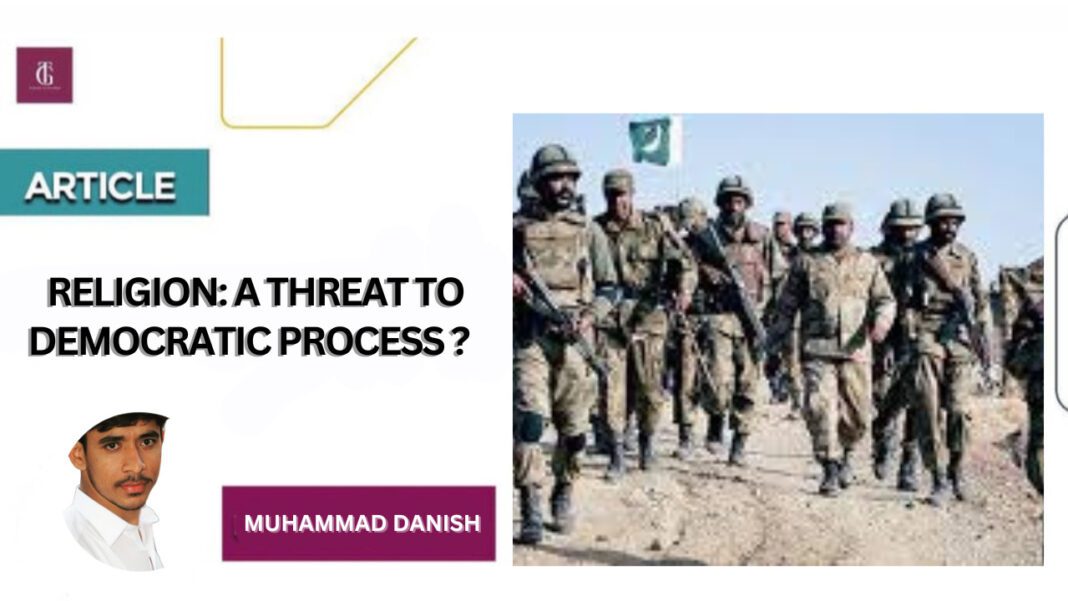Introduction
Religion has always played a significant role in shaping societies, providing moral guidance, and fostering community. However, when religion becomes intertwined, it can threaten democratic principles. This opinion article will explore how religion, religious contexts, and the modern world have challenged democracy. By examining notable examples from the past and analyzing contemporary issues, we can gain a comprehensive understanding of the potential threats religion poses to democratic governance.
Historical Events
The Spanish Inquisition: The Spanish Inquisition during the 15th century is a vivid example of how religion can redefine democracy. The collaboration between the Catholic Church and the Spanish monarchy led to the suppression of religious dissent, persecution, and execution of thousands of individuals. The Inquisition stifled freedom of thought and expression, hindering democratic ideals of pluralism and tolerance.
Theocracy in Iran: The establishment of an Islamic theocracy in Iran after the 1979 revolution provides insight into the threats posed by religion to religion. While the revolution initially promised democratic reforms, the consolidation of power by religious leaders led to the subversion of democratic principles. Theocratic rule imposed strict religious laws, restricted civil liberties, and suppressed political opposition, ultimately hindering democratic participation and perpetuating discrimination against religious and ethnic minorities.
The Troubles in Northern Ireland: The conflict in Northern Ireland, primarily between Catholic nationalists and Protestant unionists, exemplifies how religious divisions can erode democratic governance. The intertwining of religious identities with political loyalties perpetuated a cycle of sectarian violence and hindered progress toward a peaceful resolution. The conflict demonstrated how religious differences, when exploited for political gain, create deep divisions and undermine democratic principles.
Suppression of Scientific Progress: Religious influences have often hindered scientific progress, impeding societal development. Examples such as the Catholic Church’s condemnation of Galileo Galilei for his heliocentric model of the universe highlight how religious authorities, with unchecked power, can suppress scientific advancements and hinder progress.
Contemporary Threats
The Rise of Religious Extremism: In the modern world, religious extremism poses a significant threat to democracy. Extremist ideologies that intertwine religion and anReligioncs can fuel terrorism, undermine societal cohesion, and challenge democratic institutions. Examples such as the Taliban’s rule in Afghanistan and the emergence of radical Islamist groups highlight the dangers of religious extremism to democratic governance.
Discrimination and Social Divisions: When exploited for political gain, religious beliefs can perpetuate discrimination and deepen social divisions. In several countries, conservative religious factions have advocated for regressive policies that discriminate against women, sexual minorities, and religious minorities. These policies undermine the principle of equality upon which democracy is built, hindering progress toward an inclusive and just society.
The Influence on Public Policy: Religion can significantly influence public policy, potentially compromising democratic decision-making processes. When religious doctrines guide policy formation, it risks sidelining evidence-based approaches, rational discourse, and the people’s will. This can lead to policies that infringe upon individual liberties, hinder social progress, and prioritize religious interests over the common good.
Polarization and Threats to Pluralism: In the modern world, the fusion of religion and anReligioncs often intensifies social polarization and threatens the fabric of pluralistic societies. When religious beliefs become the basis for political ideology, it creates an “us versus them” mentality, fostering intolerance and hindering constructive dialogue. Such polarization undermines the inclusive nature of democracy and stifles the pursuit of common ground and compromise.
Tackling Religion wiReligionocratic Framework
Tackling religion with a religious framework requires striking a balance between respecting individuals’ religious freedoms and maintaining a secular and inclusive society. Here are a few ways democracy can approach the interaction with religion:
Religion: Religion upholds the principle of freedom of religion, allowing individuals to practice their faith without discrimination or coercion. This includes protecting the right to worship, change or leave one’s religion, and express religious beliefs without fear of persecution.
Separation of church and state: Many democracies adopt the principle of separation between religious institutions and the government. This ensures that religious institutions do not have direct control over political decisions and public policies. Separation of church and state helps maintain a secular and inclusive society where people of different religious backgrounds can coexist peacefully.
Equal treatment: Democracy strives to ensure equal treatment for all individuals, regardless of their religious beliefs. It seeks to prevent discrimination based on religion and anReligiones religious tolerance and understanding among different religious communities. Democratic societies often have laws and institutions to protect religious minorities and safeguard their rights.
Public discourse and education: Democracy encourages open and respectful dialogue on religious matters. It provides platforms for individuals to express their beliefs, debate, and shape public opinion. Education is crucial in promoting religious literacy, fostering mutual understanding, and countering prejudice and stereotypes.
Balancing competing interests: Democracy involves participating in diverse groups with different religious perspectives. It requires striking a balance between protecting individual religious freedoms and ensuring that the rights of others are not infringed upon. This delicate balance can be achieved through democratic institutions, such as courts, that interpret and enforce laws that respect all individuals’ rights and dignity.
Engaging religious communities: Democracy can actively engage with religious communities to address shared concerns and promote common values, such as social justice, human rights, and the well-being of all citizens. Open dialogue and collaboration can help build bridges between religious groups and the broader society, fostering social cohesion.
Conclusion
Religion has the power to inspire, guide, and provide solace to individuals, but when religion conflicts with politics, it can pose threats to democratic governance. Historical examples such as the Spanish Inquisition, theocracy in Iran, and the Troubles in Northern Ireland illustrate the dangers of intertwining religious authority with political power. In the modern world, the rise of religious extremism, discrimination, influence on public policy, and social polarization further emphasize the potential threats of religion to religion.
To safeguard democratic principles, it is vital to maintain a clear separation between religious institutions and the governance of a nation. Respect for individual liberties, equality, evidence-based decision-making, and inclusive dialogue should form the foundation of democratic systems. By acknowledging and addressing the challenges posed by religion to religion, societies can navigate the complexities of diverse beliefs while upholding the core values of democratic governance.

Muhammad Danish
Muhammad Danish, a student of Bs Political Science at School.of Politics and International Relations Quaid I Azam University.






